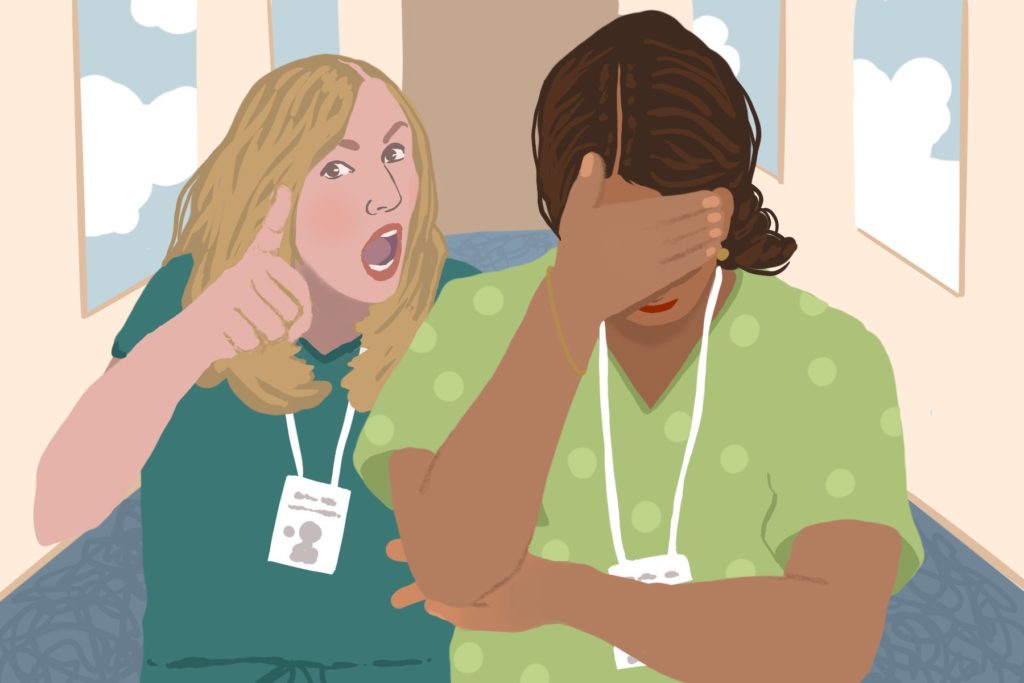Healthy Workforce
Bullying and Retaliation
Taking action when you’re scared to speak up

No matter how hard she tries, new nurse Tameka can’t do anything right for Becky, one of the older, more experienced nurses. Becky constantly picks on Tameka during report and always gives her the worst assignments when in charge. Twice, Becky has told Tameka, “Maybe you’re just not cut out to be a nurse.”
It’s gotten to the point where Tameka gets sick to her stomach when she knows she must work with Becky. Tameka confides to a coworker that she is going to report the bullying nurse. The coworker warns her that others have tried, but Becky just made their lives even more miserable.
Bullying and incivility are familiar problems in healthcare, and yet the bad behavior continues. Part of the reason is that dealing with human behavior is more complicated and less intuitive than dealing with clinical performance. It’s much easier to tell a coworker he needs to work on his IV insertion skills than that he needs to treat you with respect.
However, the biggest obstacle to ending bullying in healthcare isn’t the complexity of human behavior— it’s the victims not speaking up because they fear retaliation.
“She’ll Make Our Lives a Living Hell”
In my experience, this is a more widespread problem than you might realize. At the Healthy Workforce Institute, we’ve talked to thousands of employees about their perceptions of workplace culture.
Here’s just a sampling of comments employees have shared with us regarding bullying in their workplaces:
- “If we say anything, he’ll find out and make our lives a living hell.”
- “We’ve referred to the new nurses as the ‘sacrificial lambs’ when it’s their turn to give report to the mean nurses, but there’s nothing we can do about it.”
- “We don’t want to get her in trouble. We just want her to stop.”
One nurse shared a story that brought me to tears. She had spoken up about a workplace bully who would threaten other employees and whose behavior also made the nurse concerned about the patients.
























